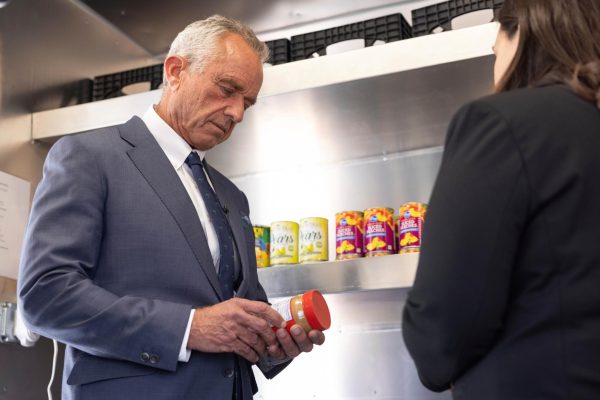Business as Usual: Nikola’s Days Are Limited
The past two weeks have not been friendly to Nikola Corporation (NASDAQ: NKLA). The electric vehicle company has recently come under an immense amount of questioning and criticism related to defrauding investors and misleading public perception of its production capabilities. This article will dive into those new developments, as well as attempt to convey to readers why Nikola is more suited to producing lies than electric trucks.
Founded by Trevor Milton in Salt Lake City only six years ago, Nikola quickly rose to prominence as a potential innovator in the electric vehicle industry. Since its inception, the company has touted many designs and concepts, ranging from the Nikola NZT, an off-road utility vehicle, to the Nikola Two, a hydrogen-fueled electric semitruck. As of writing this piece, none of Nikola’s concepts — including the ones just mentioned — are in production.
Nonetheless, in March 2020, Nikola announced plans to merge with VectoIQ Acquisition Corporation, a special purpose acquisition company (SPAC). Also referred to as “blank-check companies,” SPACs are formed for the purpose of acquiring or merging with other companies in order to bring those firms to public markets. In the case of Nikola, its merger with VectoIQ expedited its process of raising money on global stock exchanges. Thus, on June 4, 2020, one day after the merger was finalized, Nikola began trading on the NASDAQ at a price of $37.55. Five days later, NKLA reached a closing high of $79.73, more than double the value of its offering price. By early August, the market capitalization of Nikola (the price of its stock multiplied by the number of shares available for trading) was $13 billion, despite the fact that the company has produced zero vehicles and had brought in a total of $80,000 in revenue throughout the first six months of 2020. In other words, investors had placed a 162,500x multiple on the value of Nikola relative to its year-to-date revenue figures. Such an extreme ratio, coupled with the fact that the company had zero vehicles in production, should have raised numerous red flags for investors.
The euphoria surrounding Nikola and its stock price did not seem to last long. By September 4, 2020 — almost three months after reaching a closing high of $79.73 — NKLA closed the trading day at $35.55, a decline of more than 55%. However, Nikola was then thrown a life preserver; on Sept. 8, 2020, American auto manufacturer General Motors announced a partnership, which included GM taking an 11% equity stake in Nikola. More specifically, in exchange for being allowed to place a member on Nikola’s board, GM agreed to begin producing the Badger (Nikola’s electric pickup truck) at its own manufacturing facilities. In addition, GM agreed to supply Nikola with fuel cells and batteries for its vehicles. As this news was released, investors who may have been skeptical of Nikola’s capabilities became reassured of the company’s promises; after all, if a longstanding American automotive company believes in Nikola, then the future must be bright. As a result, shares of NKLA rallied more than 50%.
Two days later, on Sept. 10, a bombshell report pertaining to Nikola was released by Hindenburg Research, a firm dedicated to short selling (betting that share prices of companies will decline). According to the report, Nikola is described as “an intricate fraud built on dozens of lies over the course of its founder and executive chairman Trevor Milton’s career.” The main highlight of the report was the claim that a video posted by Nikola in 2018 showing its semi-truck — the Nikola One — running under its own power was fabricated. In order to mimic the motion of full functionality, Hindenburg claimed that Nikola used a long and gradual slope capable of accelerating vehicles to highway speeds, even if the vehicle itself was not capable of reaching such speeds independently. The Financial Times later confirmed Hindenburg’s theory.
Between Sept. 10 (the day the report was published) and Sept. 12, shares of NKLA fell 36%. On Sept. 14, the Securities and Exchange Commission formally opened an investigation into allegations of fraud on behalf of Nikola. One day later, the Department of Justice had followed suit with a similar investigation. Then, on Sept. 21, Milton abruptly announced his resignation from the company. The final blow came on Sept. 23 when British Petroleum (BP), a multinational oil and gas company, retreated from a potential partnership to develop Hydrogen Refueling Stations for Nikola’s trucks.
Shares of NKLA closed at $19.46 on Sept. 25, a decline of more than 75% from its June high. While this decline is monumental, my price target on the company is substantially lower: $0.00. The amount of corruption and fraudulent practices relating to Nikola that have surfaced in a concentrated manner over a span of just a few weeks shows how much damaging information had been bottled up from the beginning stages of the company’s plan to go public. Nikola Tesla once said, “The present is theirs; the future, for which I really worked, is mine.” Maybe if Nikola Corporation followed the insight of the real Nikola, they would not be in the devastating situation they currently find themselves.
Richard Falvo is a junior from New Hartford, NY pursuing a double concentrating in economics and philosophy. After joining The Maroon-News in Fall 2019,...








